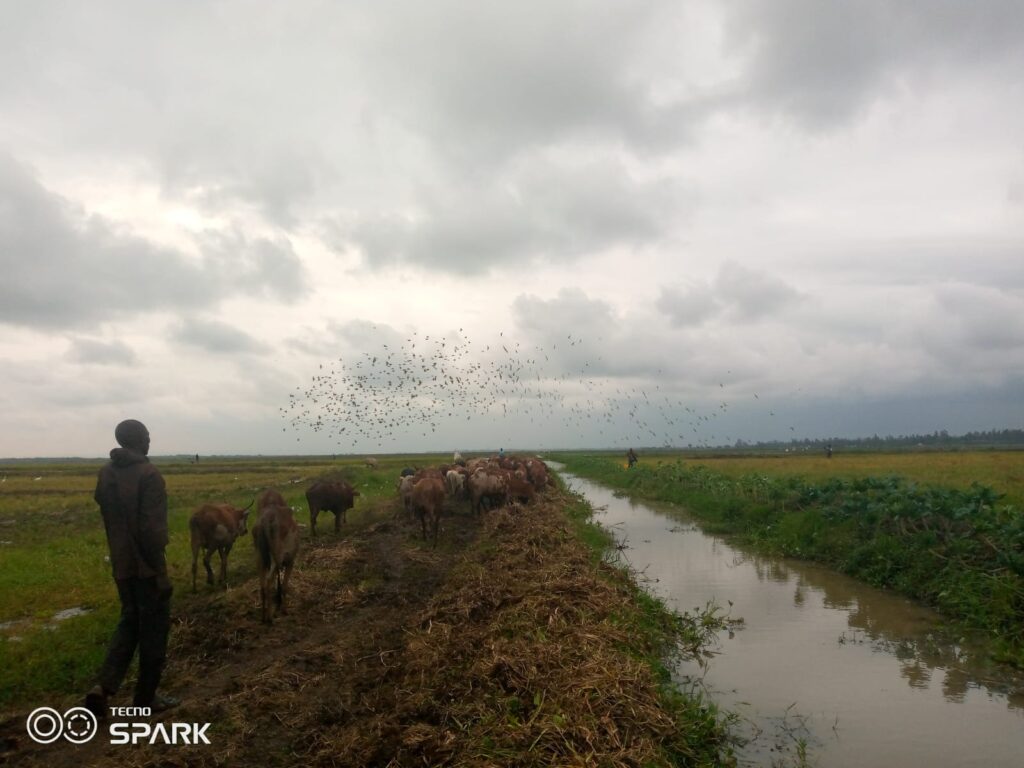It is 3.00pm in Nyang’ande, men and women are shouting and whistling in the 2230-acre West Kano Irrigation Scheme.
A swam of birds perch from farm to farm to have a bite as they are scared away by the farmers.
This people have to be here everyday from 6.00 am to protect their only source of livelihood.
This goes on until late in the evening.
If these birds are not removed, we will have nothing to harvest this season
Kennedy Sinogo
This season the farmers here say the birds are so many and they fear that their crops could be wiped out if urgent measures are not taken.
“If these birds are not removed, we will have nothing to harvest this season,” said Kennedy Sinogo who is the Chairman of Land Dispute and Resolution Committee.
The Invasion
The migratory birds started flocking 3 months ago but have been here over the years.
Following the invasion, the farmers have been forced to employ four casual workers to guard an acre of rice.
Each casual worker is paid Sh1000 per month to scare the birds away.
“If you don’t employ a bird scarer you may not make any profit,” said Sinogu.
The farmers say the birds are now smarter and are a big threat to the crop and if not guarded could destroy an acre of land in two hours.
We use rice to educate our children and meet other financial needs
Jared Odongo
With the ongoing invasion the rice farmers are now stressed that their only source of livelihood could be destroyed.
“We use rice to educate our children and meet other financial needs,” said Jared Odongo who is the scheme chairman.

The scheme has 5,000 farmers and produces 5000 metric tonnes per year.
60 per cent of the produce is exported to Uganda and the rest is consumed locally.
The growers expressed fears that there will be an acute shortage of rice nationally if the birds are not tamed.
“They have never been this many,” said Kennedy Otieno who is a farmer at block 31 in the scheme.
Otieno says the birds who are unmoved by most of the conventional scare tactics need to be tamed.
I don’t know what happened, but suddenly there is an increase in the number of birds
Kennedy Otieno
Breeding ground
Some say the birds have been attracted by the new variety of rice known as Kwamboka which was recently introduced by the National Irrigation Authority.
“I don’t know what happened, but suddenly there is an increase in the number of birds,” says Otieno.
The farmers are also decrying the high cost of fertiliser, low market rates as well lack of enough support from the county government.
The farmers are saying the previous administration used to spray the birds with jets.
The increase in bird population has also been attributed to perfect environment to breed along River Nyando.
